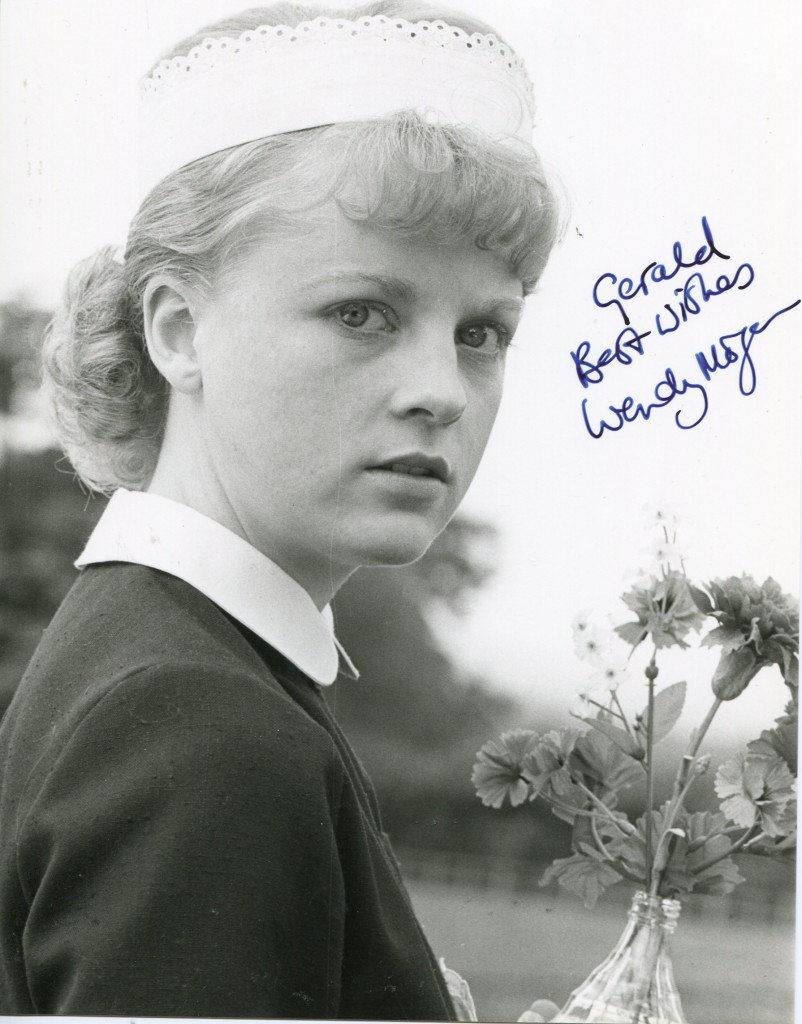
Wendy Morgan was born in 1952 in Herfordshire. She first came to prominence for her performance in “Yanks” in 1979. Other movies include “Birth of the Beatles” where she played Cynthia Lennon’ and “The Mirror Cracked” in 1980.

Brittish Actors

Wendy Morgan was born in 1952 in Herfordshire. She first came to prominence for her performance in “Yanks” in 1979. Other movies include “Birth of the Beatles” where she played Cynthia Lennon’ and “The Mirror Cracked” in 1980.
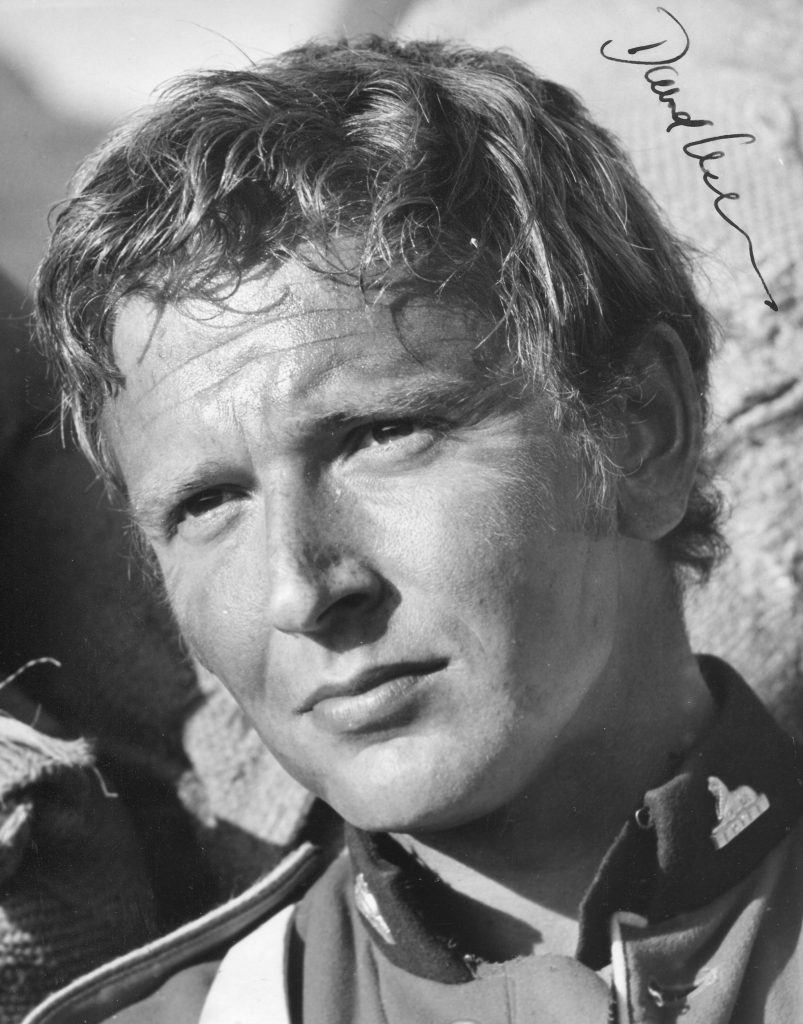
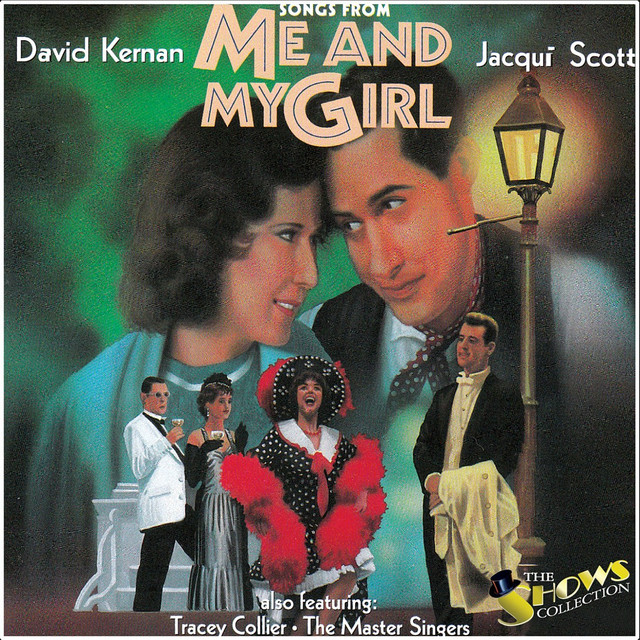
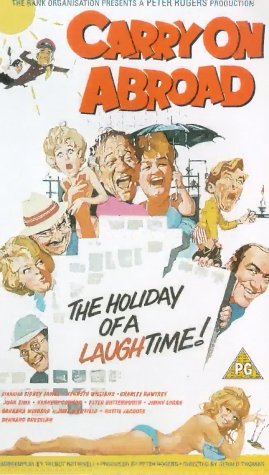
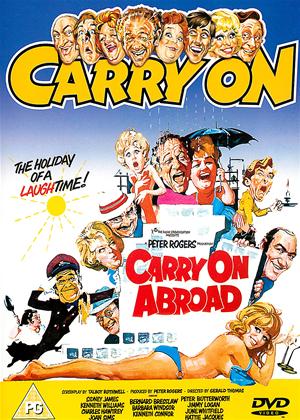
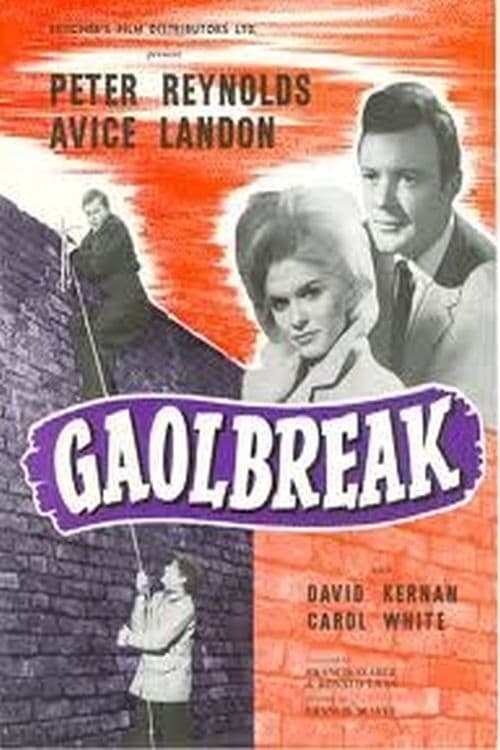
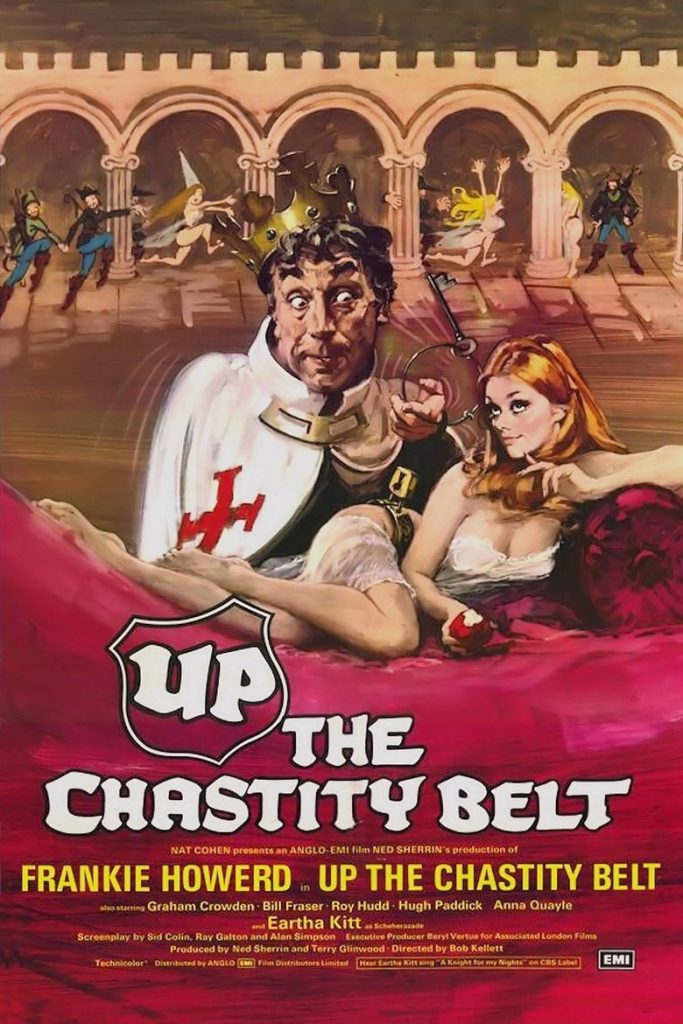

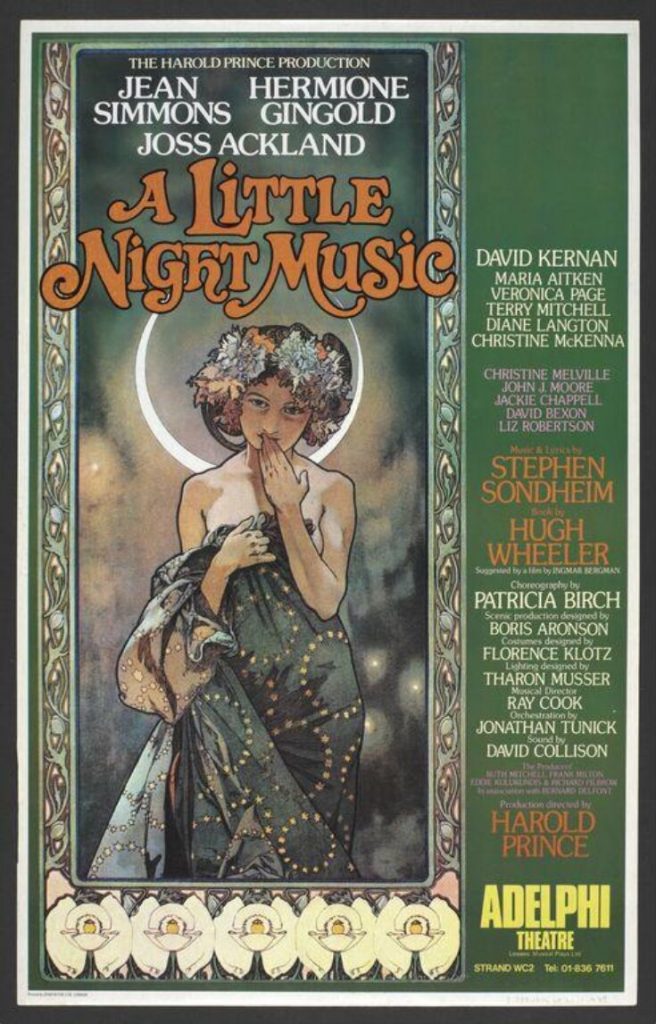
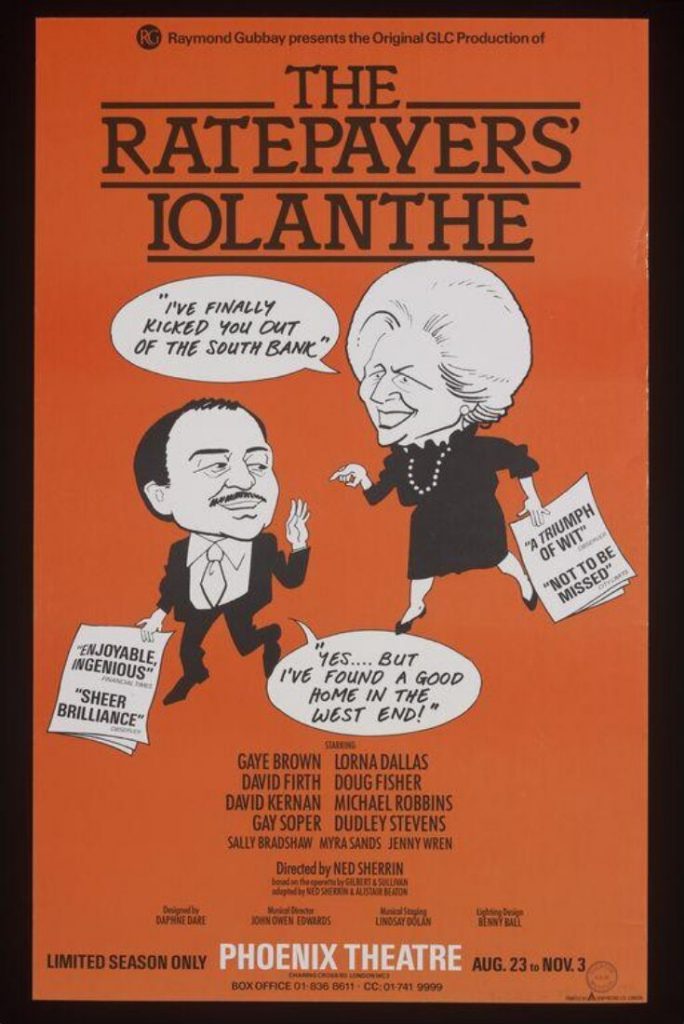
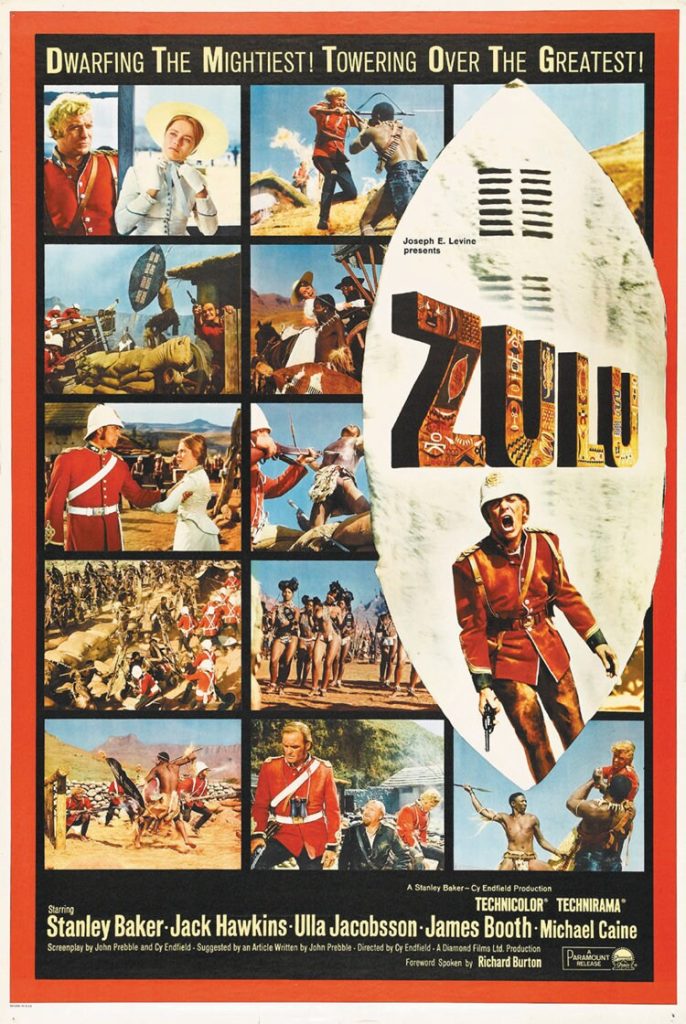
IMDB entry:
David Kernan was born on June 23, 1938 in London, England. He is an actor, known forZulu (1964), That Was the Week That Was (1962) and The Chastity Belt (1971).
Musical actor renowned for devising and performing Side By Side By Sondheim who was a regular on That Was the Week That Was
Anthony HaywardTue 16 Jan 2024 21.57
Eagle-eyed aficionados of the 1964 war film epic Zulu will recall the actor David Kernan in the role of Private Frederick Hitch, one of the British soldiers successfully defending Rorke’s Drift hospital and storehouse during the 19th-century Anglo-Zulu war.
“How can I shoot them if I can’t see them?” Kernan says as he mounts the ramparts. Moments later his character suffers a bullet-wound, but still manages to keep communication with the hospital open and supply ammunition to his comrades, the actions which earned Hitch a Victoria Cross.
But Kernan, who has died aged 85 after suffering from Alzheimer’s disease, devoted most of his career to musical theatre, gaining a reputation as Britain’s leading interpreter of the Broadway composer Stephen Sondheim’s songs.
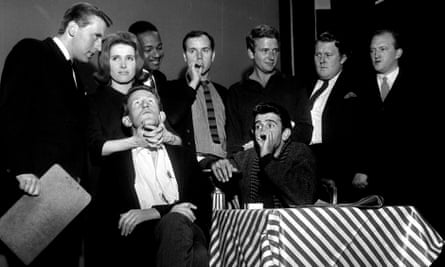
He first shone in Sondheim as Count Carl-Magnus Malcolm in A Little Night Music at the Adelphi theatre (1975-76). Jean Simmons was the star, fresh from a US tour of the production, portraying an itinerant actor reviving love with an old flame, played by Joss Ackland. The show, a romantic story inspired by the director Ingmar Bergman’s 1955 film Smiles of a Summer Night, repeated its Broadway success.
Kernan had been asked by Cleo Laine and Johnny Dankworth to put together a revue for their Stables theatre in Wavendon, Buckinghamshire, and, bowled over by Sondheim’s music and lyrics, he had the idea of creating a show of his songs that had not previously been performed live in Britain.
After consulting Sondheim, Kernan sought help from the broadcaster Ned Sherrin, producer of the 60s satirical TV series That Was the Week That Was, in which Kernan had performed topical songs. They recruited Millicent Martin, who had also appeared on the programme, and Julia McKenzie, and in 1975 staged The Sondheim Songbook, with numbers from shows such as West Side Story, Gypsy, A Funny Thing Happened on the Way to the Forum, Company and Follies, some written jointly with other composers.
With a new title, Side by Side by Sondheim (suggested by McKenzie), the show was produced by Cameron Mackintosh in the West End the following year, at the Mermaid theatre, then Wyndham’s, and then at the Garrick, where it ran for 806 performances, continuing with other artists until 1978. Kernan, Sherrin, Martin and McKenzie left the London production in 1977 to take the show to Broadway, with special dispensation from the US actors’ union, Equity. All four earned Tony award nominations, before again giving way to others.
Clive Barnes wrote in the New York Times: “Mr Kernan is all charm and polish, with a gleaming wit, and, like his well-matched women, displays a great sense of fun, and, occasionally, a feel for dreamily poetic passion.”
Kernan organised other Sondheim compilation shows, including Moving On (Bridewell theatre, 2000), and became a patron of the Stephen SondheimSociety, formed in 1993, giving valuable advice to performers in its workshops.
He was born in East Ham, London, to Lily (nee Russell) and Joseph Kernan, an underground train driver. His father walked out shortly after his birth and, from the age of four to 14, Kernan lived with his grandmother in Oxford, where he was head chorister at the University Church of St Mary the Virgin. “I was a rather fat, plain child,” he recalled, “but I had a very pretty soprano voice.”
Aged 15, he left Portchester school, Bournemouth, trained as a chef and performed with the local Shakespeare Players. He then worked as a shop assistant in London before breaking into repertory theatre as an assistant stage manager and actor at the Theatre Royal, Huddersfield (1957).
After his West End debut, in the chorus of Where’s Charley?, starring Norman Wisdom, at the Palace theatre (1958-59), he spent some of his earnings on singing, dancing and acting lessons.
His vocal talents were demonstrated on television with Millicent Martin in the BBC current affairs series Tonight. Sherrin, one of its producers, then took the pair to That Was the Week That Was. “I think Ned wanted a mix of Oxbridge types and showbiz people, so he brought us in to lighten things up,” Kernan told the Stage. “It was an odd mix, but it worked.”
He returned to musicals as the Hon Ernest Woolley in Our Man Crichton (Shaftesbury theatre, 1964-65) and was back in the West End to play Edward Rutledge, a US founding father, in 1776 (at the New theatre, now the Noël Coward, 1970). He was in the revue This Thing Called Love (Ambassadors theatre, 1983) and played the Ken Livingstone character, leader of the Greater London council, in Sherrin’s political satire The Ratepayers’ Iolanthe, with Gilbert & Sullivan songs, at the Queen Elizabeth Hall in 1984.
Kernan kept creating his own revues even after the style went out of fashion. He conceived and directed Jerome Kern Goes to Hollywood in 1986, taking it from the Donmar Warehouse in London to Broadway. In 1994, he devised a celebration of Noël Coward and Cole Porter, Noel/Cole – Let’s Do It, at the Oxford Playhouse, then the Chichester Festival theatre. Later came Dorothy Fields Forever (2002), about the American lyricist, co-created with Eden Phillips and performed at the Jermyn Street and King’s Head theatres.
On television, he was a regular featured singer in On the Bright Side (1959-60), a satirical sketch show starring Stanley Baxter which they took to the stage as On the Brighter Side at the Phoenix theatre in 1961. Kernan also appeared in Upstairs Downstairs, as an army captain who has an affair with Lady Marjorie (Rachel Gurney) in 1971, and his rare film roles included a troubadour in Up the Chastity Belt and a holidaymaker in Carry On Abroad (both 1972).
His autobiography, From East Ham to Broadway, was published in 2019.
Kernan is survived by his husband, Stuart Forsyth, whom he married in 2014 following a civil partnership in 2008.
David Stanley Kernan, actor, singer, producer and director, born 23 June 1938; died 26 December 2023




IMDB entry:
In Britain, special Christmas plays called pantomimes are produced for children. Jack Hawkins made his London theatrical debut at age 12, playing the elf king in “Where The Rainbow Ends”. At 17, he got the lead role of St. George in the same play. At 18, he made his debut on Broadway in “Journey’s End”. At 21, he was back in London playing a young lover in “Autumn Crocus”. He married his leading lady, Jessica Tandy. That year he also played his first real film role in the 1931 sound version of Alfred Hitchcock‘s The Phantom Fiend (1932). During the 30s, he took his roles in plays more seriously than the films he made. In 1940, Jessica accepted a role in America and Jack volunteered to serve in the Royal Welsh Fusiliers. He spent most of his military career arranging entertainment for the British forces in India. One of the actresses who came out to India was Doreen Lawrence who became his second wife after the war. Alexander Kordaadvised Jack to go into films and offered him a three-year contract. In his autobiography, Jack recalled: “Eight years later I was voted the number one box office draw of 1954. I was even credited with irresistible sex appeal, which is another quality I had not imagined I possessed.” A late 1940s film, The Black Rose (1950), where he played a secondary role to Tyrone Power, would be one of his most fortunate choices of roles. The director was Henry Hathaway who Jack said was “probably the most feared, yet respected director in America, for he had a sharp tongue and fired people at the drop of a hat. Years later, after my operation when I lost my voice, he went out of his way to help me get back into films. What I did not know was that during the filming of ‘The Black Rose’ he was himself suffering from cancer.” In the 1950s came the film that made Hawkins a star, The Cruel Sea (1953). Suffering from life long real life sea sickness, he played the captain of the Compass Rose. After surgery for throat cancer in 1966, requiring the removal of his larynx, Jack continued to make films. He mimed his lines and the voice was dubbed by either Charles Gray or Robert Rietty. His motto during those last years came from Milton’s “Comus”, a verse play in which he acted early in his career in Regent’s Park. The lines: “Yet where an equal poise of hope and fear does arbitrate the event, my nature is that I incline to hope, rather than to fear.”
– IMDb Mini Biography By: Dale O’Connor <daleoc@worldnet.att.n
TCM overview:
Best remembered for his numerous portrayals of military men, from the indomitable Major Warden in “The Bridge on the River Kwai” (1957) to the officer-turned-criminal-mastermind in Basil Dearden’s humorous “The League of Gentlemen” (1960). Although he lost his voice after an operation for cancer of the larynx in 1966, Hawkins continued to perform, with other actors dubbing his lines. He was married to actress Jessica Tandy from 1932 to 1942.























Betsy Blair is perhaps best remembered by moviegoers for her performance in “Marty” opposite Ernest Borgnine in 1955. She was born in New Jersey in 1923 and began her acting career on the Broadway stage. In her late teens she married the actor/dancer Gene Kelly and went with him to Hollywood. Her film debut came in 1947 in “A Double Life” which starred Ronald Colman. She was also featured in “Another Part of the Forest” and “The Snake Pit” which starred Olivia de Havillamd. After her divorce from Kelly, she married the British based film director Karel Reisz and settled in the UK whereshe made such movies as “A Delicate Balance” in 1975. She died in 2009 in London.
Brian Baxter;s “Guardian” obituary:
Few film-makers of the left emerged unscathed from the Hollywood witchhunt led by Senator Joe McCarthy. Some died, some were ruined, some headed for Europe. Others named names. Among its victims, the actor Betsy Blair, who has died aged 85, considered herself fortunate.
Despite being blacklisted, she was made less vulnerable by her marriage to fellow socialist Gene Kelly who, by the early 1950s, was virtually untouchable thanks to such succesful movies as On the Town, An American in Paris and Singin’ in the Rain. Eventually she was nominated for a best supporting actress Oscar for her role in the 1955 film Marty. Blair began acting in films in the late 1940s, with small roles in sturdy dramas such as The Guilt of Janet Ames, George Cukor’s A Double Life and Another Part of the Forest, from the play by Lillian Hellman. She fell out of favour for activities that included substantial fundraising for leftwing causes. After Kind Lady (1951), where she nearly lost the part, she found herself unemployable. But, cushioned by wealth and a highly intelligent, inquisitive mind, she coped – still in her early 20s – with “committee” work, as wife to a superstar and mother to their five-year-old daughter.
Born Elizabeth Winifred Boger in Cliffside Park, New Jersey, she had started her career very early. After graduating from high school at 15 and being too impatient to wait to take up her scholarship at university, she went – with her teacher mother’s connivance (her father was an insurance broker) – for an audition as a dancer in a New York night club. The teenager from a sedate, small-town background found herself in the big city, directed by and in love with the choreographer Gene Kelly. She understudied the role of Laura in the Broadway production of The Glass Menagerie and took the lead in Willliam Saroyan’s play The Beautiful People. When Hollywood beckoned, the newly married couple headed west, arriving in Los Angeles on the day the Japanese attacked Pearl Harbour, 7 December 1941.
Blair’s initial disdain for movies allowed her to concentrate on theatre work, motherhood, keeping open house to the elite of Hollywood and fundraising. She was turned down by the Communist party, which feared that her joining might compromise Kelly’s outside activities. After a handful of parts and an enforced hiatus between 1951 and 1955, she was tentatively offered the role of Clara in the movie version of Paddy Chayevsky’s teleplay, Marty. Thanks to pressure from the writer and Kelly, she was finally given the role, despite the blacklist.
The film, a tender portrait of a lonely butcher (Ernest Borgnine) and a plain girl who fall in love, became a sleeper: a critical and box-office success despite unknown actors and a small budget. It led to Oscar nominations for both leads. Borgnine took the best actor award. For Blair the outcome was different: “I got the nomination. I won the best actress award at the Cannes film festival and was hot for 200 days.” She later took the best actress award at Bafta and found herself more famous in Europe than in America where, despite the accolades, she found no work, except in a Joseph H Lewis western, The Halliday Brand (1957). She left the US and Kelly for France, a Frenchman and a new life.
A small role in Tony Richardson’s BBC TV production of Othello (1955) was followed by Meeting in Paris, a comedy with Claude Brasseur. More notice was paid to her next movie (in Spain) where she played a variation of her role as Clara. Calle Mayor (Main Street, 1956), directed by Juan Antonio Bardem, cast her as a small-town spinster who is duped into bed by the local lothario with a promise of marriage. Unfortunately for Isabel, he is doing it for a bet. During the shooting Bardem was arrested by the Franco regime but, thanks to international pressure, was released and completed the rather melancholy film to some acclaim. Blair followed it with Il Grido (The Cry, 1957), directed by the great Michelangelo Antonioni. This neo-realist drama set in the industrialised Po valley of northern Italy came at the end of the cycle of such films, and was only a modest success. Blair continued working in movies, including an early version of Lies My Father Told Me (1960) in Ireland, and two Italian movies, I Delfini (1960) and Senilita (1961). Following a move to Britain, she made Basil Dearden and Michael Relph’s All Night Long (1962), a film set in the London jazz scene.
Blair decided to stay in London where, in 1963, she met and married Karel Reisz, then established – via the Free Cinema movement and his feature debut Saturday Night and Sunday Morning – as an important director. For years she worked only sporadically, including Das Bombe (1964) and Claude Berri’s comedy Marry Me, Marry Me (1968). She also returned to the theatre – an early highlight was an elegant evening of music and poetry, The Spoon River Anthology (1964), at the Royal Court theatre. She was also among a remarkable cast in the film version of Edward Albee’s A Delicate Balance (1973), directed by Tony Richardson. But during this period she decided to train as a speech therapist – to the bemusement of her friends. In the mid-1980s she embarked on a spate of television and movie work, beginning with an excellent thriller, Descent Into Hell (1986), made in France. She made Flight of the Spruce Goose (1986) in Poland, was the mother in the poor television revamp of a Hitchcock classic, Suspicion (1987), and featured in the series Thirtysomething (1989).
More than 30 years after her last Hollywood movie, she returned there to film Betrayed (1988), a political thriller directed by Costa-Gavras. This gripping story of a white supremacist (Tom Berenger) being tracked by an FBI undercover agent cast her as the racist’s mother. Blair matched Berenger’s chilling performance with authority and grace. A spot in one of the Marcus Welby television episodes, and a role as Sister of Mercy in the sprawling mini-series Scarlett (a sequel to Gone With the Wind, 1994), were – disappointingly – all that followed. In 1999 she was one of many distinguished contributors to the documentary The Rodgers & Hart Story: Thou Swell, Thou Witty and – not surprisingly – turned up in both the Gene Kelly and Judy Garland episodes of the BBC Hollywood Greats series (2000). In 2002 she was due to feature in Stephen Daldry’s The Hours, playing the older Laura Brown; in her younger guise, the depressive 50s housewife was played by Julianne Moore. In the event Blair did not, because Reisz became ill and died later that year; Moore ended up playing those scenes with old-age makeup.
Blair’s autobiography, The Memory of All That: Love and Politics in New York, Hollywood and Paris, was published in 2003. She declared herself content, having, she said, no regrets about the blacklist, which obliged her to mature as a person and – consequently – as an actor. Modestly, she once said, “it certainly wasn’t much of a career. For all my ambitions, I think my life was more important to me.” Her daughter Kerry Kelly Novick and stepsons Matthew, Toby and Barney Reisz survive her.
Arabella Weir writes: I first met Betsy when I was a know-it-all 12-year-old via my friend, her stepson, Toby, Karel Reisz’s middle son of three. Betsy presided over a large, friendly, uniquely inclusive house. She had a charming, relaxed, sunny attitude to the stream of friends her stepsons would bring home at all hours. Betsy was unlike any grown-up I’d ever met – happily offering endless, delicious meals, more often than not a bed, tolerance and inclusion in adult conversations whenever we, “the kids”, would pop into view. Eventually Betsy and Karel became my friends independently, supporting and encouraging me as I started a career in acting. Although Betsy was an intelligent, informed and outspoken woman, it’s impossible to think of her without thinking of Karel. Whilst devoted to him, Betsy never seemed like anything less than his equal. Karel and Betsy’s house was often filled with the great and good, yet Betsy was never grand or precious with her guests. They were just their friends, like the rest of us.
If Betsy was in your corner you’d always be OK, but when you got into trouble she could be very steely. Betsy had a very distinctive, singsong way of saying “hello” when she answered the phone. One time she caught Toby, Barney and I larking around doing an exaggerated version of her unique “hello” – something as young teenagers we naturally found hilarious. Betsy did not and with one look we were chastened. You didn’t mess with Betsy. She was a tremendously loving, loyal and ceaselessly supportive friend – and really good, often wicked, fun. You could talk to her about absolutely anything – nothing shocked her. I’m extraordinarily lucky to have had her as my surrogate mother for 40 years.
• Betsy Blair (Elizabeth Winifred Boger), actor, born 11 December 1923; died 13 March 2009
Gary Brumburgh’s entry:
Betsy Blair was born in Cliffside, New Jersey, a child model before finding work as a chorus dancer at the early age of 15. She received her first mini-break on Broadway in “Panama Hattie” in 1940 delivering a single line, but by the next year she had copped the ingénue lead in William Saroyan‘s “The Beautiful People.” At around the same time, she met dancer extraordinaire Gene Kelly and married him in 1940. Despite her background in dance, Betsy was admittedly not in the same league as a Vera-Ellen, Cyd Charisse, or Ann Miller, so she was never afforded the opportunity to glide with Gene in films. Moreover, she never even appeared in a musical film.
She made her large screen debut in 1947 and, for the next couple of years, appeared in a number of above-average dramas such as The Guilt of Janet Ames (1947), A Double Life(1947) starring Ronald Colman, The Snake Pit (1948), wherein she played a demented inmate alongside Olivia de Havilland, and a shining role in Another Part of the Forest(1948). After such promise, things came to a halt. Betsy had been involved in SAG politics as early as 1946 proposing the formation of the first Anti-Discrimination committee. Within a year the House Un-American Activities Committe began to investigate Betsy and others in the motion picture industry and what they considered left-wing extremist viewpoints. Her name appeared in the “Red Channels” and that was that. Her career was undone. By the early 1950s, all film offers had dried up. The only reason Betsy won the female lead in the 1955 cinematic classic Marty (1955) was because her husband threatened to stop shooting at MGM if they didn’t let her work despite the blacklist. It would be the role of a lifetime for Betsy. As the touching plain-Jane girlfriend of Ernest Borgnine‘s title butcher, Betsy won the Cannes Film and British Film acting awards, not to mention an Oscar nomination. It did not help her overcome the blacklist, however.
By 1957, she was divorced from Kelly and had moved to Europe to avoid the Hollywood shun. Shortly thereafter, she lived with French actor Roger Pigaut. In 1963, she married producer/director Karel Reisz. They would remain together for almost 40 years until his death in London of a blood disorder in 2002. Betsy later published her memoirs and discussed quite candidly her life on Broadway, life with Gene Kelly, and life amid the blacklisting. She continued to live in England before passing away from cancer on 13th March, 2009. She was 85 years old.
– IMDb Mini Biography By: Gary Brumburgh / gr-home@pacbell.net
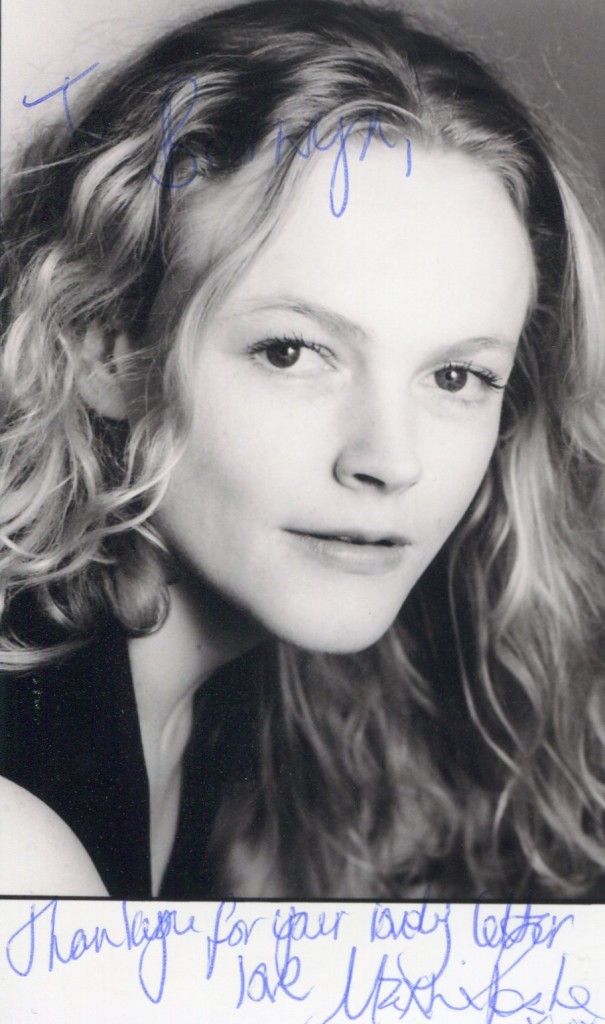
Maxine Peake is one of the best actresses working in Britain to-day. She has starred in several major television series including “Dinnerladies”, “The Village” and “Silk”. Her movies include “Best Laid Plans” and “Run and Jump”. She was born in 1974 in Bolton.
“Independent” interview with Charlotte Philby in 2008:
The house I grew up in… was a semi-detached in Bolton with a nice little back garden leading to a farmer’s field, so there were incidents of cows breaking into the garden on a regular basis.
When I was a child I wanted to be…Marti Cane. She was great, one of the first figures on telly who I looked at and thought, “She is cool!”
The moment that changed me for ever… moving to London, aged 21, to take a place at drama school. I hated London. I wondered: “Where are all the cows and dogs?” Luckily, I fell in love with it after a couple of years.
My greatest inspiration… is my granddad, Jim, who’ll kill me for saying that. He was a member of the communist party and opened up a world of self education and the possibilities in life flooded before my eyes.
My real-life villain… is unoriginal: George Bush. The man scares the life out of me; his policies, his arrogance, his eyes. I have sleepless nights about the things that he might do to the world.
If I could change one thing about myself… I’d try not to feel like I have to please all the people all of the time. It’s impossible and tiring.
At night I dream of… dark things. I have recurring dreams about losing my temper, which become quite violent. I dread to think what that says about me.
What I see when I look in the mirror… is complications. I’m someone who’s hard work and am certainly my own worst enemy. Every time I look in the mirror, I let out a small sigh.
My style icon… is, without doubt, Vivienne Westwood. She is so beautiful and inspirational that when I met her once, at the theatre, I was so overwhelmed that I couldn’t speak. I hope I grow to be just like her.
My favourite item of clothing… is a pair of old, Victorian-style Agnes B lace-up brown boots. I’ve had them re-soled over a million times and have to physically stop myself from wearing them to bed.
I wish I’d never worn… anything that I wore in my progressive rock stage, which I embraced whole-heartedly. It might not have been so bad if I weren’t living in Bolton, where I stood out like a sore thumb. Once, I was kitted out in a long suede waistcoat and listening to The Gong, and someone shouted at me “love, you missed your stop!”
It’s not fashionable but I like… and it’s a Northern cliché – my pair of Derby lace-up clogs. They’re so comfy and but apparently not everyone appreciates them. People have been known to do a double-take in the street.
You wouldn’t know it but I’m very good at… horse-riding. I actually used to compete at show-jumping when I was a youngun.
You may not know it but I’m no good at… concentrating. I get easily distracted and become a bit of a giddy giggler. I’m not good at taking myself seriously and laughing at myself helps ease the pressure.
All my money goes on… CDs, all sorts. I have quite a wide taste, lots of new folk, like The Fall, Patti Smith and The Smiths. A bit of rockabilly is up there, in fact, I’ve been through every possible phase and even have Casualty left over.
I f I have time to myself… sleep, listen to music and think. It’s great having time to just sit back and work through things in my mind, it helps put life into perspective.
I drive/ride… (very badly), a little Ford Ka, the sports version; it has slightly chunkier wheels and is called Derek. We have lots of practice in reversing into walls and other people’s cars.
My house/flat is… at the moment, not mine. I’m in the process of buying a sweet house in Salford and am staying with friend and his partner in south east London. It’s really lovely, with lots of Hogarth prints on the walls.
My most valuable possession is… my family; they drive me mad but I love them to bits.
My favourite building… is the Working Class Movement Library in Salford; a beautiful Victorian brick building run by an old couple who started collecting left-wing literature and banners, it is the most archive.
Movie heaven… is an afternoon beginning with Morgan and a Suitable Case for Treatment, followed by the Goonies – with a cup of tea and a teacake.
A book that changed me… was really a play, Road by Jim Cartwright. I was about 14, at the age where I’d usually just read something and shrug “yeah, it’s alright”. The language and imagery in this was so amazing that I wasn’t ashamed to admit my joy.
My favourite work of art… is a toss-up between Morrissey and Arthur Dooley’s The Stations of the Cross. It’s held in a Roman Catholic parish church in Leyland, and I’m not in any way religious, which makes the power of the image more impressive, somehow.
The last album I bought/downloaded… is quite embarrassing, Violin Jazz 1929-1934. When preparing a role I find it useful to listen to music from the era, in order to gage the atmosphere of the period. My latest play is set in the 30’s, hence this download.
The person who really makes me laugh… is Ronnie Barker. Of course an amazing comedian, he’s also one of the most under-rated actors; one of the finest we’ve ever had, in my opinion: a genius.
The shop I can’t walk past… would have to be the Margaret Howell shop on Wigmore Street. It’s perfect for little treats, and I can’t resist the 50’s-style tailoring.
The best invention ever… has to be the radio, I can’t live without. A self-confessed Radio 2 junky, I’m a real sucker for Brian Matthews, on a Saturday morning, followed by Jonathan Ross. My weekend isn’t the same without it.
In ten years time, I hope to be… happy and fulfilled by work that I do.
My greatest regret… is selling my BMX to a juck shop, for a fiver, when I was young. The moment I walked out of the shop I had to repress tears, I knew immediately the mistake I’d made.
My life in seven words… fun, lucky, chaotic, simple, challenging, changeable and northern.
Born in Salford on 14 July 1974, Maxine Peake is a stage and television actress. Having trained at Rada, she is best known for her role as mouthy Veronica on Channel 4’s Shameless and received critical acclaim for her portrayal of Myra Hindley in See No Evil: The Moors Murders. She will play Tony Hancock’s Wife in the forthcoming BBC4 drama Hancock and Joan and stars in The Children’s Hour, 5 March – 5 April at the Royal Exchange Theatre, Manchester. She lives with friends in south-east London.
The above “Independent” interview can also be accessed online here.














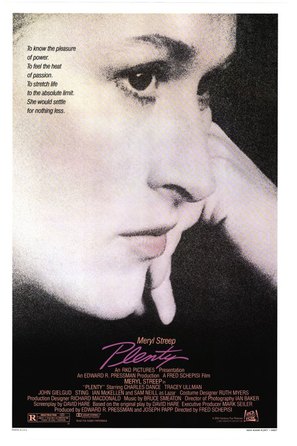




Obituary from “The Telegraph:
The actor Lyndon Brook, who has died aged 77, made a powerful impression in stage classics in the 1950s, and in such films as Reach For The Sky (1956) and The Gypsy And The Gentleman (1958).His stage appearances included Mary Hayley Bell’s The Uninvited Guest (1953); Julian Green’s South, an American tragedy about homosexuality, directed by Peter Hall (1955); Donald Ogden Stewart’s American satire, The Kidders (1958) – in which he was partnered by his sister Faith Brook – and Strindberg’s Creditors (1959), with Michael Gough and Mai Zetterling.
His film appearances included the role of the navigator, to Gregory Peck’s neurotic wartime pilot, in The Purple Plain (1954); The Spanish Gardener (1956), with Dirk Bogarde; and Song Without End (1960), in which he played Wagner. His last film appearance was in the thriller Defence Of The Realm (1985).
The son of film star Clive Brook and actor Mildred Evelyn, Lyndon was born in Los Angeles, and educated at Stowe school and Cambridge University.
He was also a director and writer for stage and television. In 1958, he directed The Ark by James Saunders (obituary, February 3); in Mixed Doubles (1969), he wrote one of the funniest of the eight dramatic monologues that comprise the play. On television, he featured in the Avengers (1961), Danger Man (1964), I Claudius (1976), and Churchill And The Generals (1979), in which he played George VI.
He met his wife, the actor Elizabeth Kentish when both were playing small parts in Laurence Olivier’s season at St James’s theatre in 1951. She survives him, as do their two daughters.
· Lyndon Brook, actor, born April 10 1926; died January 9 2004

Michael Feast was born in 1946 in Brighton. He made his debit in the British TV series “This Golden Age” in 1967. His movies include “I Start Counting” in 1969, “McVicker” and “Velvet Goldmine”.
Interview with “What’s on Stage”:
Michael Feast‘s long and distinguished stage career includes roles in The Tempest (with Sir John Gielgud as Prospero), No Man’s Land, American Buffalo, Murder in the Cathedral, The Possessed,Carousel and Sexual Perversity in Chicago. Most recently, he’s been seen in London in Jeffrey Archer‘s The Accused at the Theatre Royal Haymarket, The Forest, opposite the late Michael Williams at the National and Timberlake Wertenbaker‘s After Darwin at the Hampstead Theatre.
His other credits include, on television, Touching Evil, Kavanagh QC, A Touch of Frost andMidsomer Murders; and on film, Sleepy Hollow, Velvet Goldmine and Long Time Dead.
Date & place of birth
Born 25 November 1946 in Brighton, East Sussex, EnglandTrained at
Central School of Speech & Drama
First big break
Playing a lead part (Woof) and singing a song called “Sodomy” in the original 1968 London production of Hair.
Career highlight
Playing a black fender stratocaster (a type of electric guitar) and singing “The Seventh Sun” with Zoot Money and the Big Roll Band.
Favourite production that you’ve worked on
No Man’s Land by Harold Pinter at the National and in the West End. Why? Because you don’t get to work with John Gielgud and Ralph Richardson every week.
Favourite co-star
Michael Williams in The Forest at the National Theatre. He always passed the ball, and he gave me the opportunity to be a comedian.
Favourite director
Neil Bartlett. You’d have to work with him to find out why.
Favourite playwright
Shakespeare. Who else?
What roles would you most like to play still?
Prospero, King Lear, a bad man in a grey hat in a Western directed by Clint Eastwood.
What’s the best thing currently on stage?
I haven’t seen much recently, but Mose Allison (jazz musician) is always worth catching when he’s in town.
What advice would you give to government to secure the future of British theatre?
Pass draconian laws that prohibit the making and broadcasting of idiot dramas on the telly – copy shows, medical shows, ropey adaptations of novels, etc. Then the idiot producers would go out of business and we could all start again in the theatre. And an extra bit of advice to government – reinstate Equity’s closed shop status.
If you could swap places with one person, living or dead, who would it be?
Elvis Presley for just the period of about a year in the mid-1950s when he was recording at Sun Studios in Memphis with Sam Phillips and the Hillbilly Cats. Why? “Just because…” as the King said.
Favourite book
Riders of the Purple Sage by Zane Grey
Favourite after-show haunt
In my house with my wife
Favourite holiday destination
Barbados
Why did you want to do The Servant?
Wonderful part, wonderful play, wonderful director, wonderful theatre.
What’s your favourite line from The Servant?
“Hasn’t he got a lot of ties?”
What was the funniest moment during rehearsals for The Servant?
When the fantastically shaped loo was found to be crawling with lice underneath and every giggle ended in a shudder.
The Servant, about a spoiled young aristocrat and his wily servant, runs at the Lyric Hammersmith from 13 March to 21 April 2001 (previews from 8 March).
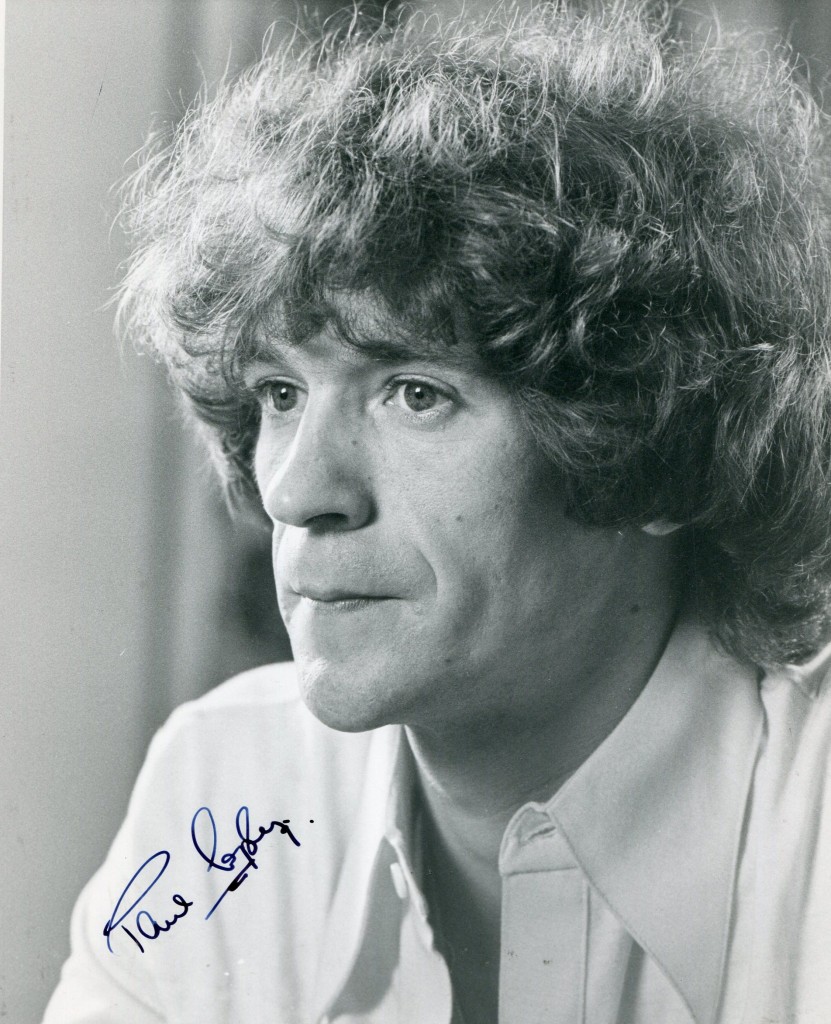
Paul Copley was born in 1944 in West Yorkshire. He seems to specialise in North Country types. Most recent appearance was in “Downton Abbey”. Films include “A Bridge Too Far” in 1977, “Zulu Dawn” and “The Remains of the Day”. He has an extensive CV including television and the stage. He is married to actress Natasha Pyne.
IMDB entry:
Paul Copley was born on November 25, 1944 in Denby Dale, West Yorkshire, England. He is an actor, known for The Remains of the Day (1993), A Bridge Too Far (1977) andHoratio Hornblower: The Duel (1998).

per wikipedia:
As an actor, Khan-Din participated in some 20 British films and TV series in the late 1980s and the 1990s. He made his film debut in My Beautiful Laundrette (1985), but is perhaps best known for the role of Sammy in Hanif Kureishi‘s Sammy and Rosie Get Laid (1987) and as one of the leading characters in the film Idiot from 1992.
In the late 1990s, Kahn-Din began writing plays, the first was East is East (1997) for the Royal Court Theatre, was nominated for a 1998 Laurence Olivier Theatre Award for Best New Comedy.[1]The play draws very much from Kahn-Din’s own childhood in Salford, where he grew up in a large family with a British Pakistani father and a white British mother. In interviews, he has stated that the young boy Sajid Khan is a self-portrait, and that Sajid’s parents are very exact portraits of his own parents.[2][3]
In 1999, the film version of East is East was released, starring Om Puri as the father and Linda Bassett as the mother. Khan-Din adapted his own play, and won both a British Independent Film Award and a London Critics’ Circle Film Award for his screenplay, as well as being nominated for two BAFTA Awards for Best Adapted Screenplay and the Carl Foreman Award for the Most Promising Newcomer, and for a European Film Award for Best Screenwriter.[4]
In 2007 Rafta, Rafta…, a play Kahn-Din wrote, opened at the Lyttelton stage of the Royal National Theatre in London. It is a comic adaptation of the 1963 Bill Naughton play, All in Good Time. The play is set in the working class English town of Bolton, and examines a story of marital difficulties within an immigrant Indian family. The play has since opened both in New York at the New Group in 2008, and at the HuM Theatre in Singapore in 2010. In 2012, a film adaption of Rafta, Rafta… was released under the title All in Good Time, it directed by Nigel Cole and with Reece Ritchie in the leading role.[5][6]
In 2010, West is West, a sequel to East is East, premiered at film festivals in Toronto and London, with a wide UK release scheduled for February 2010.[3] In this film, the story is set in 1975, four years after the story in ‘East is East. Father George Khan is worried that his youngest son, Sajid, now 15, is turning his back on his Pakistani heritage, so he decides to take him for a visit to Pakistan.[7]
Anyone who knows me are aware that I am a bit of a movie buff. Over the past few years I have been collecting signed photographs of my favourite actors. Since I like movies so much there are many actors whose work I like.